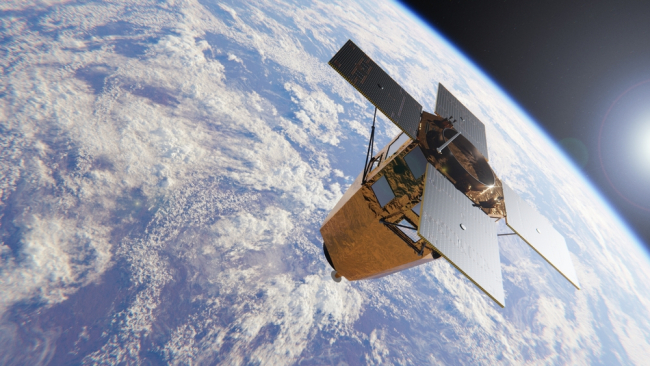The Use of Space for Maritime Security in Europe
The EU is currently developing a Maritime Security Strategy. Space should be integrated in that effort, given its potential for maritime surveillance.
The EU recently launched a reflection on a European Maritime Security Strategy. A most notable part of this effort was the report on Maritime surveillance in support of the Common Security and Defence Policy (CSDP) by the so-called Wise Pen Team in 2010-2011. The use of space in support of maritime security is a complex issue-area, at the crossing of maritime policy, security policy and space policy. The challenge is even bigger in Europe, as the EU is still in search of a coherent strategy in each of these three policy areas with numerous actors involved.
Until the middle of the 1990s, the EU did not have a strong interest for maritime issues, at least from a security perspective. This may seem paradoxical, given the importance of the maritime and coastal domains for the EU’s well-being and prosperity. They are indeed “Europe’s trade routes, climate regulators, sources of food, energy and resources”. Economically, the EU’s coastal regions account for more than 40% of its GDP while almost 90% of its foreign trade and 40% of its internal trade depend on maritime transport. This lack of interest was reversed after the end of the Cold War, with the evolution of the security environment and the development of the European Security and Defence Policy (ESDP). The relevance of the maritime domain both for external and border security became more evident for decision-makers.
While the use of space for security and defense is spreading, in particular with the growing number of national assets available, the relationship between maritime security and space remains in its infancy in Europe. Given the characteristics of satellites (potentially global coverage and continuity of observation) and recent EU policy developments in the field of maritime surveillance, the link between space and maritime security must now be emphasized.
To do so, we will define the concept of maritime security and identify the concrete role that space could play in it (1). The complexity of the European setting will be underlined, focusing on the political foundations, the multiplicity of actors involved and the efforts towards a more integrated maritime surveillance system (2). Finally, the international implications will be analyzed, as “maritime security is a global issue with a European dimension” (3).

Available in:
Regions and themes
ISBN / ISSN
Share
Download the full analysis
This page contains only a summary of our work. If you would like to have access to all the information from our research on the subject, you can download the full version in PDF format.
The Use of Space for Maritime Security in Europe
Related centers and programs
Discover our other research centers and programsFind out more
Discover all our analysesRegulatory Dynamics and Tensions in the Space Sector: Towards and Americanization of Space Law?
The development of space law has gradually evolved from a top-down normative dynamic dominated by the founding impetus of the UN to a bottom-up normativity driven by national and industrial practices. This evolution is now accompanied by growing normative competition, raising the risk of an Americanization of space law and prompting the question of a European response.
The Sustainability of Space Operations: An Opportunity for European Leadership?
As space becomes a key arena for power projection strategies, while facing growth and diversification of orbital activities, the concept of “space sustainability” is emerging as a new framework of analysis for space governance.
The European Space Model: Renewing Ambition in a Changing Strategic Landscape
The European space model, based on science, cooperation and trade, is now being undermined by changes in international relations and the economic upheavals brought about by New Space. In light of the war in Ukraine and American disengagement, Europe needs to rethink its strategy by adding a fourth pillar dedicated to defense, in order to strengthen its sovereignty and deter possible aggression against the continent.
Sat-to-Cell: Towards Universal Connectivity?
Sat-to-Cell is a new type of service that connects smartphones directly to satellites. It has recently enabled innovative applications such as emergency text messaging via satellite. The technology is developing rapidly, and many questions are now being raised about its potential impact.













